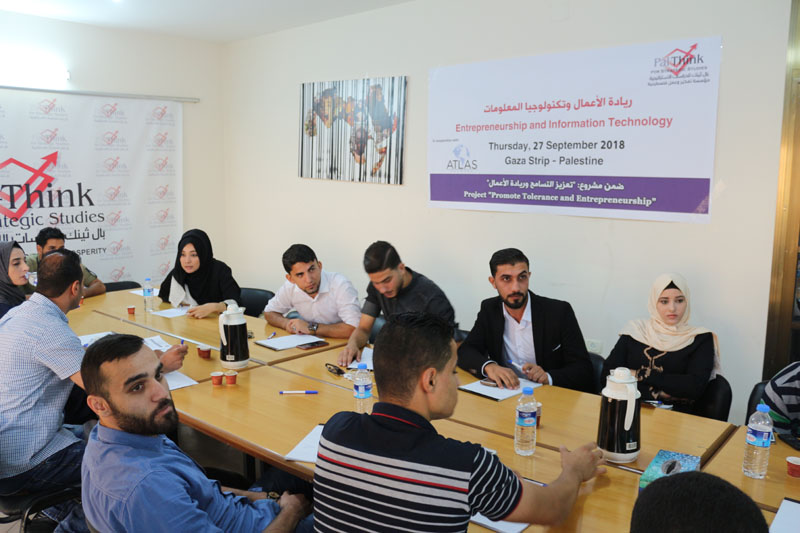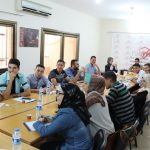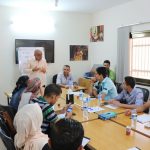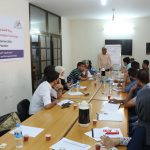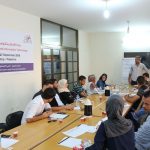Within the project “Promoting Tolerance and Entrepreneurship”, Pal Think for Strategic Studies in cooperation with ATLAS Network have organized a lecture entitled “Entrepreneurship and Information Technology”, with active participation of 20 students and graduates from both genders with different specializations. This project aims at promoting a culture of tolerance, entrepreneurship and self-employment among youth in the Gaza Strip.
The lecturer and entrepreneurial researcher Mr. Islam Attalla began the lecture, and discussed different topics concerned with the new technological and contemporary digital revolution in the world, such as the system of (Big Data) and how it works, prospecting system (Data Mining) and challenges faced by the new companies in data bases. He also mentioned the stages of technological and knowledge development, and how evolution will become out of expectation control, and we as individuals won’t be able to keep up with it continuously, especially with the continued flow of large data and computing techniques, data complexity and analysis, in addition to the speed of transformations and changes in the regions and political field, which affects the form , quality and speed of information, in all areas, especially as we entered the stage of inability to analyze without the machine and technology in all including politics and security.
Mr. Attallah also compared between the progress of Arab countries and the other developed countries in the world.
He also pointed out that each entrepreneurial project starts with an idea, and the idea must carry a new or sophisticated knowledge to solve certain problems, by providing services or tools to solve problems. He also addressed the qualities of optimal leader in the economic and technological market, and how newborn technological companies are funded.
At the end of the lecture, Mr. Islam emphasized that the world has moved from quantitative to qualitative inequality, and information / technology has become the primary source of superiority for individuals and societies.

